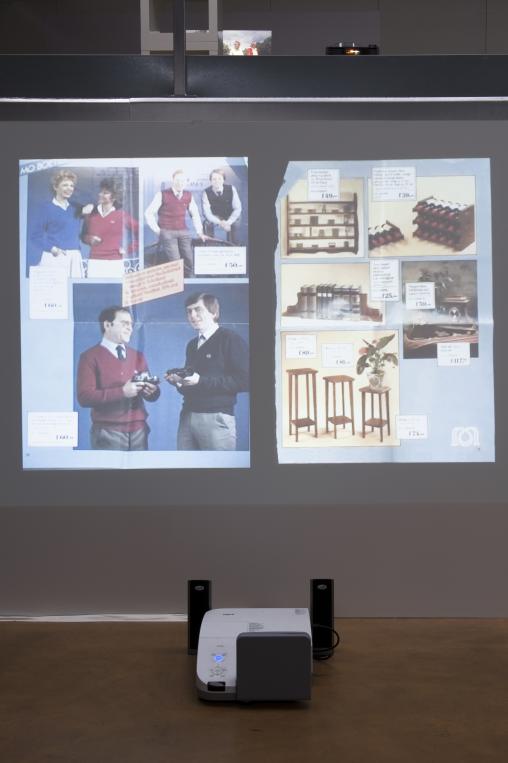Artforum Critic's Pick by Miguel Amado
Retrieved from: http://artforum.com/archive/id=45989
The practice of Rotterdam-based artists Iratxe Jaio and Klaas van Gorkum explores social transformation in the West brought forth by late capitalism. In their latest exhibition, organized by the independent curatorial group Latitudes, they examine the “image” of labor that has emerged as economic systems based on Ford-inspired models of mass production have gradually been replaced by immaterial, service-based economies. Producing Time In Between Other Things, 2011, for example, is inspired by the woodturning that van Gorkum’s grandfather picked up after retiring. The artists retrieved the wooden objects (made by the elder van Gorkum) from the homes of their family and friends across the Netherlands, and united them in the gallery alongside photographs of their original locations. The items sit on top of platforms, the supports of which are pieces the artists produced using the same lathe employed by van Gorkum’s grandfather while training in the craft.
In Work in Progress, 2013, Jaio and van Gorkum consider the gradual shuttering of factories across Europe, as provoked by the relocation of many Western manufacturing facilities to the East. A video documents an assembly line of rubber car parts in a Basque Country village, which are destined for international markets. One sees this mass-production at work in a plant managed by blue-collar workers, but also in a later phase during which a female immigrant workforce hand-finishes the components in informal facilities. Jaio and van Gorkum commissioned some of these contracted workers to make resin casts of Spanish artist Jorge Oteiza’s serial, miniature abstract pieces created in the context of his 1970s experimental “Chalk Laboratory” enterprise. These elements are displayed on dedicated shelves alongside a plinth on top of which lie their molds. By establishing a parallel between the alienated action of the laborers and sculpture’s formalist tradition in Spain, Jaio and van Gorkum resort to personal narrative as much as history to activate debates on art’s autonomy, or its capability to engage in a critical assessment of the real.







![Gaur [sic]](http://www.parallelports.org/sites/parallelports.org/files/styles/small_cropped/public/field/image/article/gaursic_montajea.jpg?itok=6czeeiAF)







